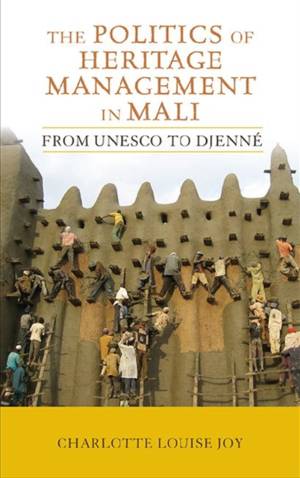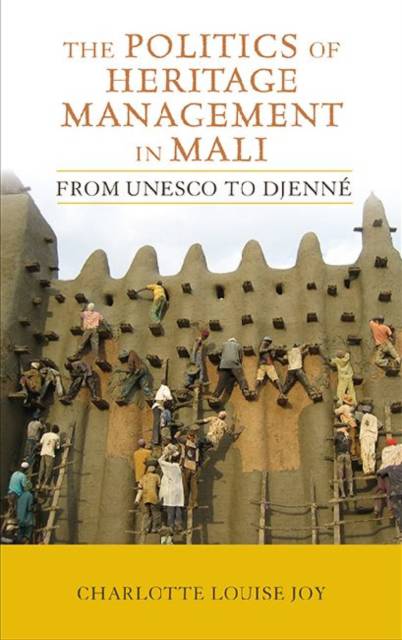
- Afhalen na 1 uur in een winkel met voorraad
- Gratis thuislevering in België vanaf € 30
- Ruim aanbod met 7 miljoen producten
- Afhalen na 1 uur in een winkel met voorraad
- Gratis thuislevering in België vanaf € 30
- Ruim aanbod met 7 miljoen producten
Zoeken
€ 58,45
+ 116 punten
Uitvoering
Omschrijving
The UNESCO World Heritage Site of Djenné, in modern day Mali, is exalted as an enduring wonder of the ancient African world by archaeologists, anthropologists, state officials, architects and travel writers. In this revealing study, the author critically examines how the politics of heritage management, conservation, and authenticity play essential roles in the construction of Djenné's past and its appropriation for contemporary purposes. Despite its great renown, the majority of local residents remain desperately poor. And while most are proud of their cultural heritage, they are often troubled by the limitations it places on their day to day living conditions. Joy argues for a more critical understanding of this paradox and urges us all to reconsider the moral and philosophical questions surrounding the ways in which we use the past in the present.
Specificaties
Betrokkenen
- Auteur(s):
- Uitgeverij:
Inhoud
- Aantal bladzijden:
- 235
- Taal:
- Engels
- Reeks:
Eigenschappen
- Productcode (EAN):
- 9781611320954
- Verschijningsdatum:
- 31/08/2013
- Uitvoering:
- Paperback
- Formaat:
- Trade paperback (VS)
- Afmetingen:
- 150 mm x 226 mm
- Gewicht:
- 385 g

Alleen bij Standaard Boekhandel
+ 116 punten op je klantenkaart van Standaard Boekhandel
Beoordelingen
We publiceren alleen reviews die voldoen aan de voorwaarden voor reviews. Bekijk onze voorwaarden voor reviews.











